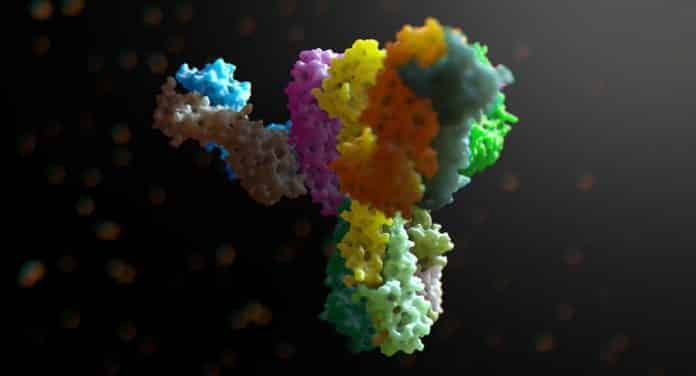Study Elucidates Role of Soluble Antibodies in Tumor Progression
A critical part of the immune response system, immunoglobulins occur in two main forms: soluble antibodies and membrane-bound antibodies.
Chronic lymphocytic leukemia (CLL) is a malignancy characterized by the progressive accumulation of mature B cells. Chronic lymphocytic leukemia cells can secrete immunoglobulin M. However, it is not clear whether secretory IgM (sIgM) plays a role in disease progression.
Now, Wistar researchers, using CLL and lung cancer mouse models, have found that soluble antibodies promote tumor progression by inducing accumulation of myeloid-derived suppressor cells (MDSCs).
“Our research highlights the contribution of soluble antibodies in inducing accumulation of MDSCs,” said Chih-Chi Andrew Hu, Ph.D., who led the study. “These are a population of immune suppressive cells that inhibit the antitumor functions of T cells and cause worse outcomes in many cancer types.”
The team, in the course of their study, induced MDSCs in mice models, they included an additional model of CLL in which B cells can only produce membrane-bound antigen receptors but not soluble antibodies.
When examined, it was observed that survival was longer and there was a significantly lower number of MDSCs, which also had lower ability to suppress T cells, thus suggesting
that soluble antibodies are responsible for accumulation of immune suppressive MDSCs.They also found that genetic and pharmacological targeting of the IRE-1/XBP-1 pathway of the endoplasmic reticulum stress response, which is critical for antibody production, results in decreased numbers and reduced functions of MDSCs.
“We suggest that soluble antibodies may execute their immune suppressive function by recruiting MDSCs in the tumor microenvironment or promoting their functions“, said Chih-Hang Anthony Tang, M.D., Ph.D., a staff scientist in the Hu Lab and the first author of the study. “Another possibility is that soluble antibodies may stimulate other types of immune cells to produce soluble factors that in turn contribute to the expansion of MDSCs and their functions.“






























